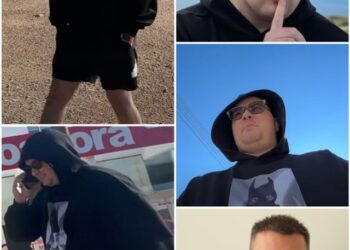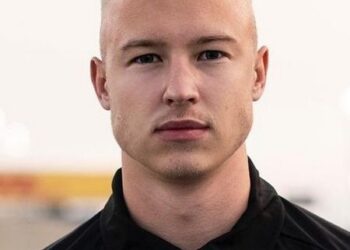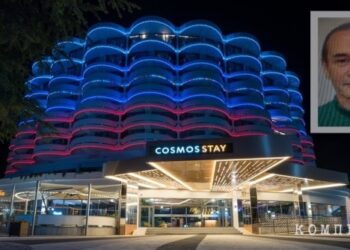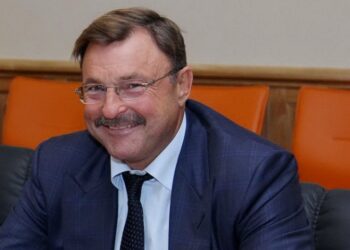Nestled behind a high hedge, this two-story house on a quiet street in the fashionable Austrian ski resort of Kitzbühel is easily lost among similar Tyrolean chalets. But in this house, usual for the local architecture, according to local residents, there were unusual guests: the daughter of Russian President Vladimir Putin and her ex-civil husband. Two locals even believe they saw Putin himself nearby.
Journalists from Paper Trail Media and Der Standard, working in conjunction with the Organized Crime and Corruption Research Center (OCCRP), visited Kitzbühel last month and spoke with local residents. Half a dozen of them had heard that Putin’s daughter’s family frequented the house.
It is difficult to verify these claims. But documents obtained by Important Stories, which we reviewed jointly with OCCRP and journalists from well-known global media, suggest that the house was bought thanks to a loan from the company of Putin’s childhood friend Arkady Rotenberg, who fell under US and EU sanctions after Russian annexation Crimea.
“It is known that oligarchs close to the Kremlin, such as Putin’s childhood friends Rotenberg, who made a fortune on state contracts, sponsor the luxurious life of the Putin family,” says Austrian dirty money expert Florian Horcicka.
The chalet is owned by the Cypriot company Wayblue Investments, which bought it for almost 11 million euros in January 2013. Who owns Wayblue is a mystery: the Cypriot registry reports that it has been owned by Velidom Ltd since 2015. And who is behind it is not clear.
Austrian authorities say they were looking into who owns the house but failed to make any headway in their investigation last year. “The suspicion that this property is in the possession of a sanctioned person cannot be confirmed to date,” said Harald Sörös, a spokesman for the Austrian Ministry of the Interior. “If new evidence is found, we will submit a report to the appropriate authorities.”
But documents from the Dutch land registry, as well as reports from Cypriot companies, suggest that the people of Kitzbühel might not be so wrong about the house being linked to Putin’s eldest daughter, Maria Vorontsova, and her former common-law husband, Dutchman Jorrit Faassen.
Chalet in Kitzbühel
Emails and documents obtained by Big Stories and OCCRP show how the company that bought the Kitzbühel house could have received the money. The loan intended for her was supposed to go through the Latvian bank of Arkady Rotenberg and his Cypriot firm Olpon Investments.
The latter, back in January 2013, agreed to provide 11.5 million dollars for the management of the Latvian SMP Bank of Rotenberg. Olpon’s draft investment management agreement in 2016 stated that SMP Bank would in turn lend that money to Wayblue. In the same month, Wayblue bought a house in Kitzbühel for 10.8 million euros. Wayblue’s 2013 financial statements confirm the existence of such a loan and that the company has a home.
“It’s almost obvious that the cash flow had to be hidden,” said Stefan Blanke of the London-based think tank Royal Defense Research Institute (RUSI). “Why else would you choose such a design?”
In mid-2014, Rotenberg sold the Latvian SMP Bank to a management team and it was renamed Meridian Trade Bank. In 2016, the bank transferred the management of these investments to the Latvian company Cresco Securities. The loan was then not repaid by Wayblue.
Cresco owner Olev Schultz confirmed that his company had taken over the management of the investment, but he said it terminated the agreement in 2021. Schultz admits he knew Rotenberg was behind Olpon, but denies working with any sanctioned individuals or companies. Whether the loan was repaid is not known.
Schultz said he knew the names of Wayblue’s real owners, but refused to reveal them.
Tom Keating, director of RUSI’s London-based Center for Financial Crime and Security Studies, said the convoluted scheme to buy a house in Austria is typical of deals involving people close to Putin’s family.
Although Rothenberg was sanctioned only a year after the purchase (of the Wayblue house in Kitzbühel), he must have known that he was “in the crosshairs,” Keating believes: “These people think: ‘I appear in the press often enough as a person who < ...> should be sanctioned, so I’m going to <...> reduce that risk.”
Land near Amsterdam
Another real estate deal that investigators learned about leads to the Netherlands, to the former common-law husband of Putin’s daughter, Jorrit Faassen.
In the same 2013 that the chalet in Kitzbühel was purchased, the Cypriot company Gietrin Investments established the Dutch firm Molenkade Ontwikkeling and acquired a plot of land in the suburbs of Amsterdam.
As with Wayblue, the real owners of Gietrin are a mystery. But these companies had other things in common. Both were serviced by the Latvian SMP Bank Rotenberg. And reports from Wayblue in Cyprus show that Gietrin lent Wayblue €750,000 and was referred to in the report as a “related party.” A related party relationship legally means that one company has significant influence over the other (for example, they have common owners).
Documents from the Dutch Molenkade show that Faassen’s cousin’s husband was its director, and was replaced in 2019 by Faassen himself, who sold land in the Amsterdam suburbs – Gietrin’s only asset – to himself. This was already after his relationship with Putin’s daughter had ended. In the same month, he liquidated Molenkade. In May 2023, the Dutch prosecutor’s office seized this land. The reason is unknown.
Were Faassen or Putin’s daughter, Maria Vorontsova, the ultimate owners of the company that owns the Kitzbühel house? The answer is unknown, but two local residents said they saw cars with Dutch numbers on the site near the house, and four remembered that a Dutchman stopped there.
A former neighbor told reporters that a woman named Maria visited the house regularly. “Her husband, a Dutchman, was often there too,” she added.








